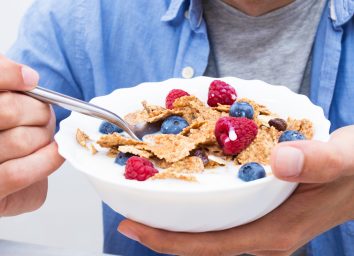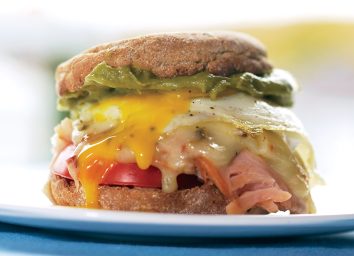Eating Habits to Avoid If You Have Painful Headaches, Say Dietitians
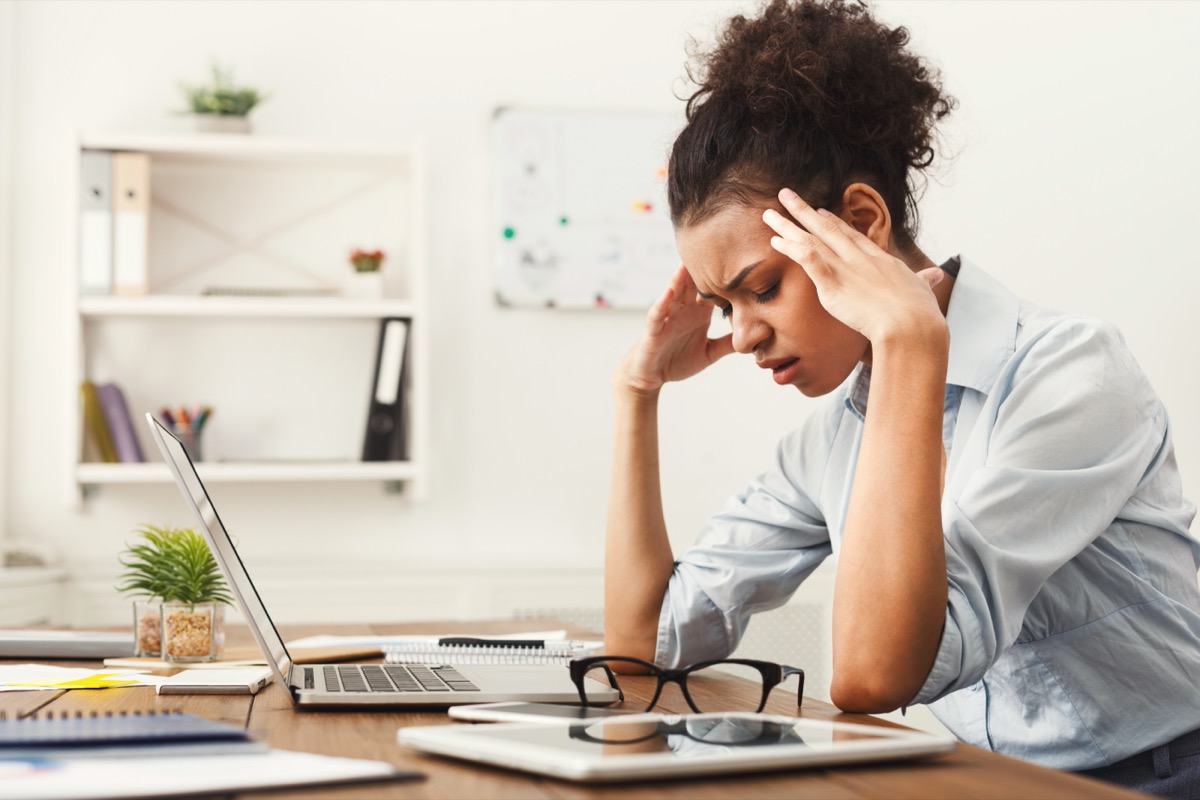
When a headache begins to pierce, common knowledge points in the direction of the medicine cabinet. From Advil to Aleve, there is no shortage of synthetic solutions to head pain, which makes sense; as many as 45 million Americans suffer from them each year, so the demand for relief is definitely there.
However, in our haste to end the discomfort, we may be missing an opportunity to analyze the root of the problem and then attempt to aid it naturally. While headaches can be brought on by a variety of factors, diet is definitely key. An imbalanced diet can cause or worsen headaches. The flip side of that knowledge, of course, is power. By being conscious of nutrition, we can also potentially avoid the pain.
We spoke to dietitians and got their take on five eating habits that make it more likely that a person might develop a headache, as well as tips on how to avoid them. Then, for more healthy tips, here’s The #1 Best Juice to Drink Every Day, Says Science.
Skipping meals
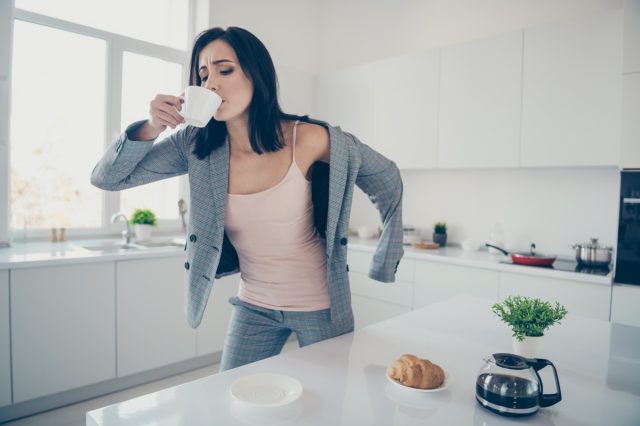
Foregoing a meal is sometimes just a casualty of a busy day. But according to Amy Goodson, MS, RD, CSSD, LD, author of The Sports Nutrition Playbook, and a member of our medical expert board, that missed meal could result in a throbbing temple.
“When you skip meals, it usually results in a blood sugar drop or crash. When your blood sugar is low it can contribute to headaches as well as feeling dizzy, nauseous, and even light-headed,” she says.
Goodson recommends eating a series of small meals and snacks throughout the day to avoid developing low blood sugar and a subsequent headache. Anything containing high-fiber carbohydrates and protein will help keep your blood sugar stable, she says.
Not eating protein at meals and snacks
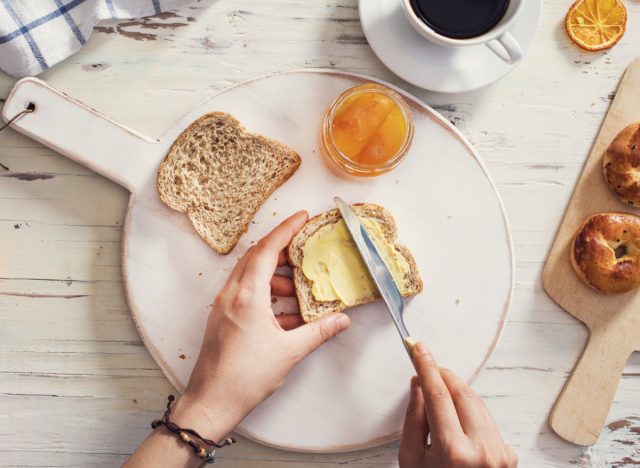
One way to help ensure stable blood sugar is to be mindful about incorporating protein into meals and snacks, even in small ways.
As Goodson outlines, “when you eat carbohydrates by themselves (think fruit, cereal, bagels, and granola bars), your blood sugar tends to rise then drop more substantially due to the lack of protein. The blood sugar drop, similar to when skipping meals, can give you a headache fast.”
She recommends tying in protein however possible: for example, putting peanut butter on toast, eating nuts with your granola bars, or adding Greek yogurt to your bowl of cereal. If you pass up protein, you’re putting yourself at a higher risk of head pain.
Removing or drastically limiting carbohydrates
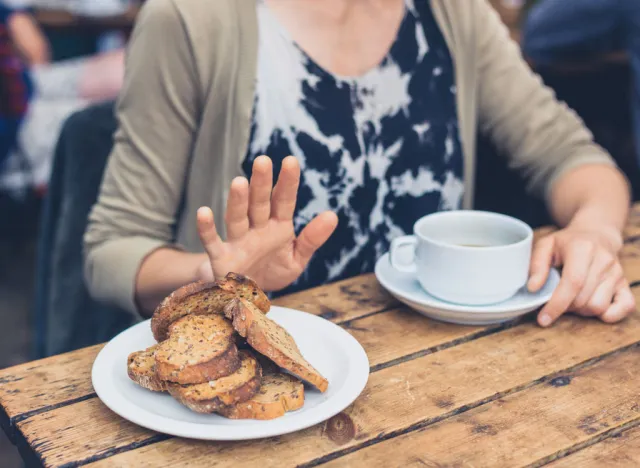
That being said, the solution is not to adopt a protein-only diet, either. As Johna Burdeos, RD LC CNSC, explained, “The body operates best with a balance of nutrients.” While we want to be mindful about subsisting solely on carbohydrates, limiting them in an extreme way can also cause headaches.
Burdeos suggest a solution: “Consider including more carbs that are made with whole grains which are packed with fiber, vitamins, minerals, and antioxidants. All great for overall health, boosting satiety, and staving off hunger pangs and the headaches that come with that.”
Eating sugary foods by themselves
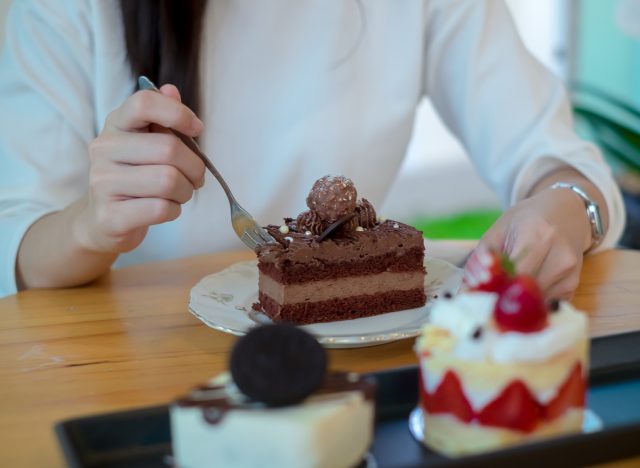
Sugar intake translates pretty directly to a blood sugar spike, which as we know, can then result in a headache when those levels eventually fall again.
“If you have a sugar spike and energy high after consuming a sugary food or beverage,” says Goodson.”You better believe a blood sugar drop and energy slump is coming as well. This can lead to headaches and feeling fatigued, and what’s worse, it leaves you looking for more sugar.”
Of course, the best solution here is to simply avoid foods with lots of added sugar. If that’s impossible (the birthday cake looks really good) Goodson says one way to circumvent the side effects is by consuming a protein simultaneously.
Drinking coffee without eating
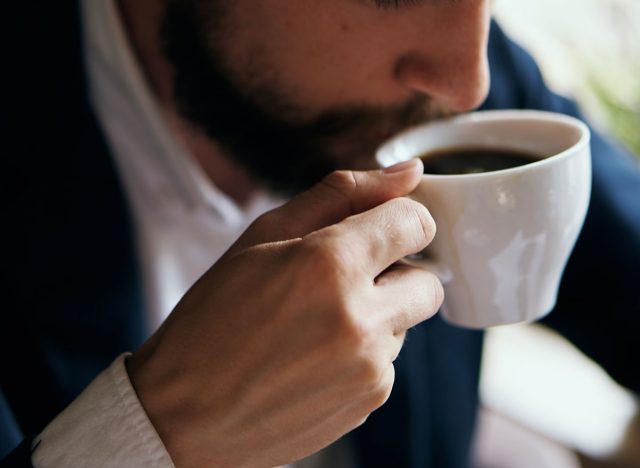
We’ve all heard rumors about the multitude of types of caffeine-induced headaches. There’s the too-much-coffee headache, the too-little-coffee headache, the too-late-at-night coffee headache.
“Everyone has a different response to caffeine, but because it is a central nervous stimulant, it can often leave people with a headache and feeling jittery if they drink coffee on an empty stomach,” says Goodson. “If your blood sugar is low from not eating, caffeine can often magnify the effect leaving you feeling worse and possibly a pounding headache.”
Avoid caffeine-induced headaches by drinking coffee only while also consuming a balanced meal high in fiber and–you guessed it –protein.
“At breakfast that might be drinking your morning cup of joe with eggs and whole-grain toast or oatmeal and Greek yogurt,” says Goodson. “If you have coffee at a snack, try it with ricotta cheese and berries or even energy bites made with oats, nut butter, nuts, seeds, and honey.”

